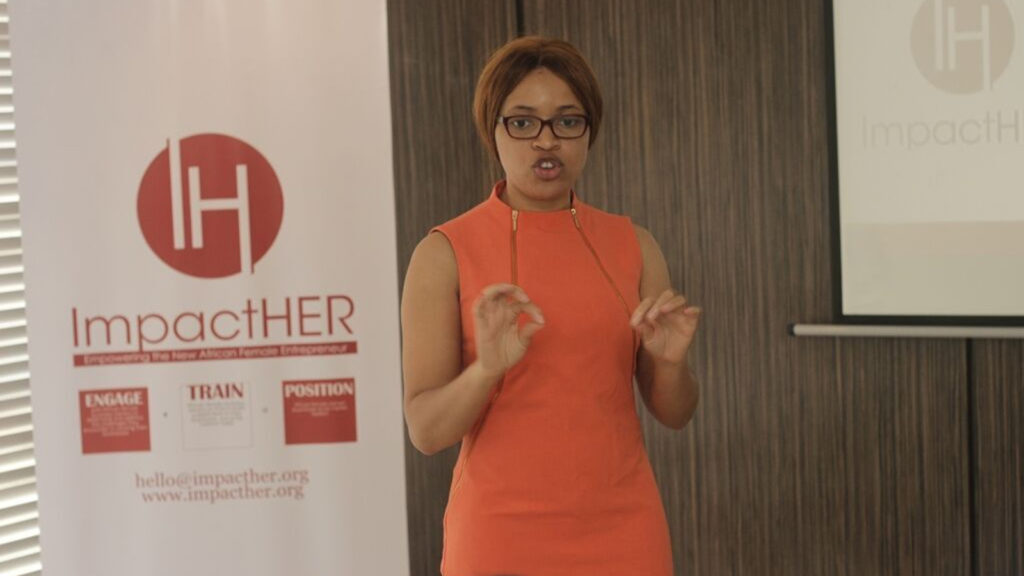South Africa’s esports scene is set for a major showdown as Hyprop and MTN introduce SHIFT COD, a Call of Duty tournament forming part…
Challenges women entrepreneurs face are more visible says ImpactHER founder

The challenges women entrepreneurs in Africa face when accessing finance — though not unique to women — are often more visible in women-led businesses believes Efe Ukala, an investment lawyer and founder of non-profit ImpactHER.
These says she says include financial management and putting in place good governance.
“Based on my observation while advising on investors transactions arising out of east, west and southern Africa, I believe that these issues are common in most African countries, although cloaked in slightly different colours,” says Ukala (pictured above).
Her organisation ImpactHER — which Ukala launched last year — aims to train African female entrepreneurs scale their businesses and access institutional capital.
The organisation’s first event, held in Lagos last year, covered financial management and the investor selection process. She now plans to hold similar events in other parts of Nigeria as well as Kenya and Ghana.
Efe Ukala founded ImpactHER, a non-profit that trains female entrepreneurs to scale their businesses and access institutional capital
However, she points out that one of the major issues women entrepreneurs, not only in Africa, but around the world, face is something that is out of their control — investor perception.
She points to a study published in the Harvard Business Review in June last year where researchers looked at video recordings of 185 one-minute pitches during an MIT Entrepreneurship Competition.
Ukala says researchers found that the questions posed to female entrepreneurs were “sprinkled with elements of gender bias”, which suggests a lack of confidence in female entrepreneurs.
“The study revealed that female entrepreneurs that sought funding from venture capitalists were only awarded, on average, 25% of the amount they asked for. On the other hand men received, on average, over 50% of the amount they asked for,” says Ukala.
She pointed out that in addition the study showed that 53% of women had applications for finance denied, compared to just 38% of men.
Solution? Open dialogue
Ukala believes that these issues can addressed through open dialogue on the impediments to funding with investors, banks and female entrepreneurs.
“Entrepreneurs need to be cognisant of what investors require in approving an investment in a company, which oftentimes can be reduced to execution and an investor’s conviction that an entrepreneur can execute its business plan,” she says.
The training programme her organisation offers includes sessions in which investors brief women on what investors look out for when they evaluate prospects they seek to provide capital for.
However, she believes investors too have a part to play, she calls on them to be “more intentional in investing in women-led businesses”.
“Of course, I am in no way implying that investors should blindly invest in women-led businesses from a statistical viewpoint, rather, investors should be more intentional in seeking and investing in competitive women-led businesses,” says Ukala.
Here are some of her tips on how female entrepreneurs can assure investors and gain their confidence:
Know your numbers
Ukala says it is vital that female entrepreneurs seeking funding have a strong hold of their companies’ finances and are able to articulate how the capital sought would be able to grow the business.
Leadership is key
In reviewing potential investments, investors place a high emphasis on the leadership team, their track record, years of experience in their niche industry, the entrepreneur’s competitors, and the investor’s conviction that the entrepreneur in question has the ability to execute the business plan.”
Strong structure
Women entrepreneurs, she says, should focus on building robust business structures and processes, having a well-qualified team, communicating a clear business strategy, and building an impressive track record. “While all of these factors are important, of equal importance is having a great reputation,” says Ukala.
Featured image: ImpactHER founder Efe Ukala (Supplied)


